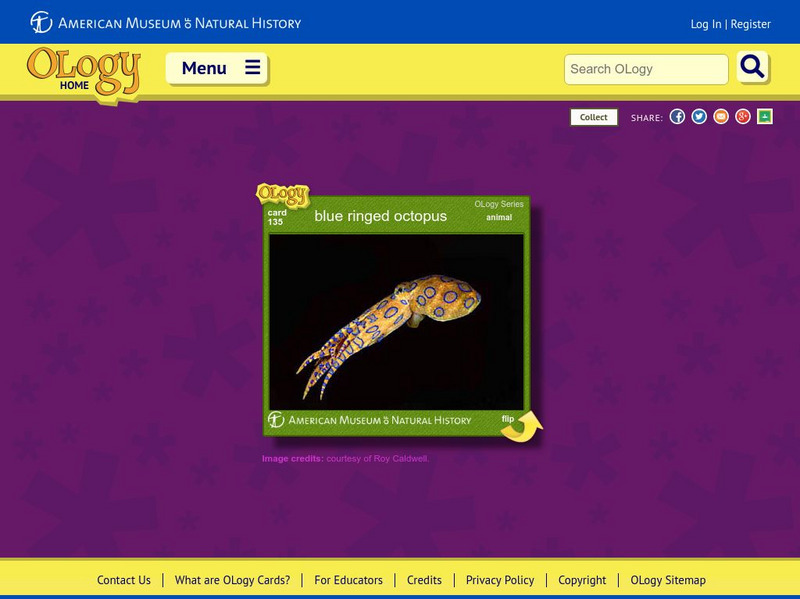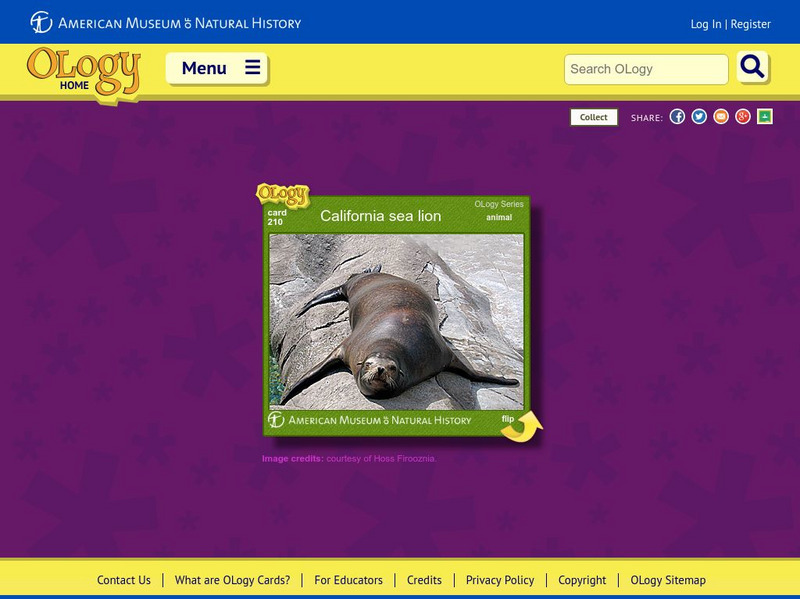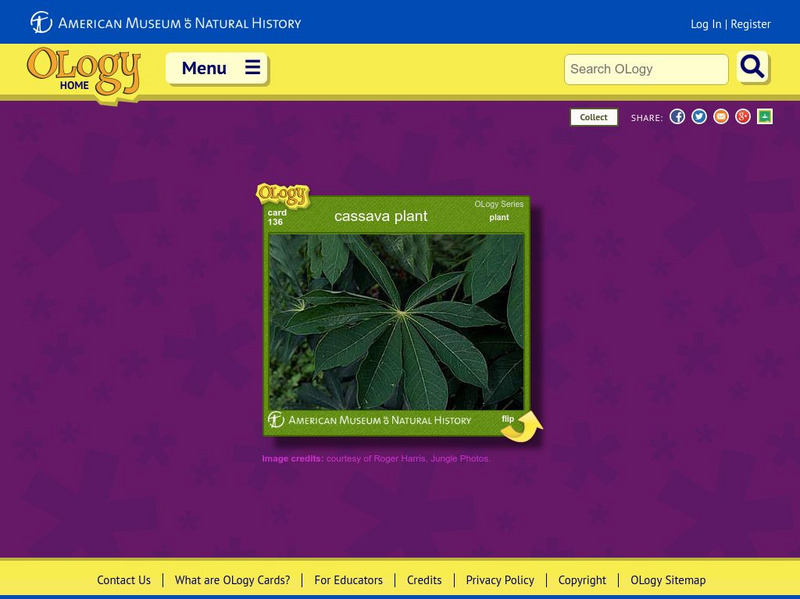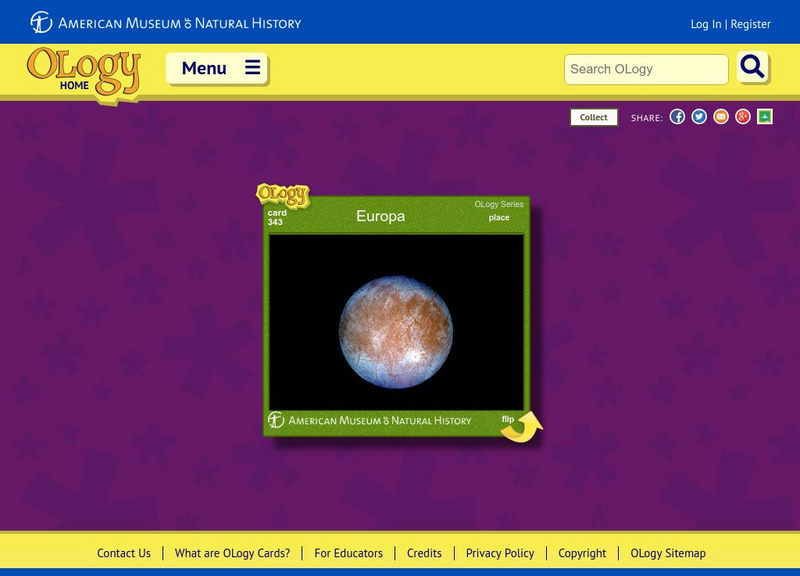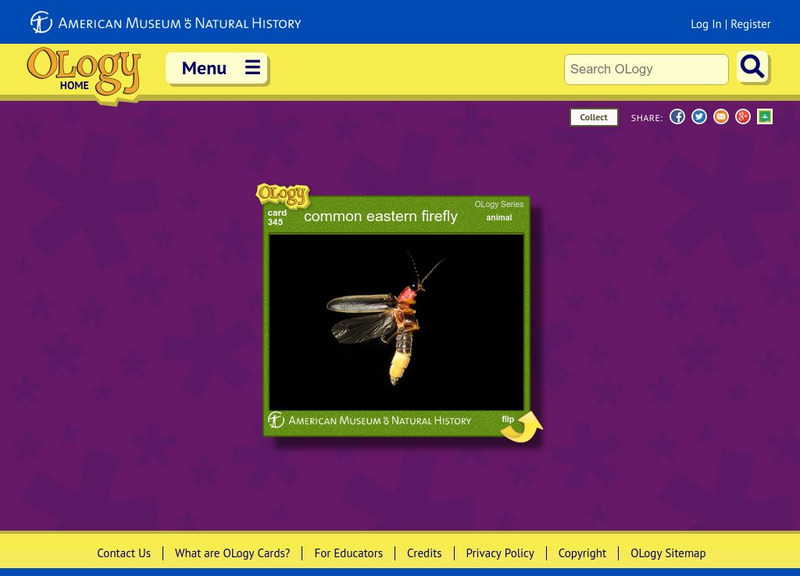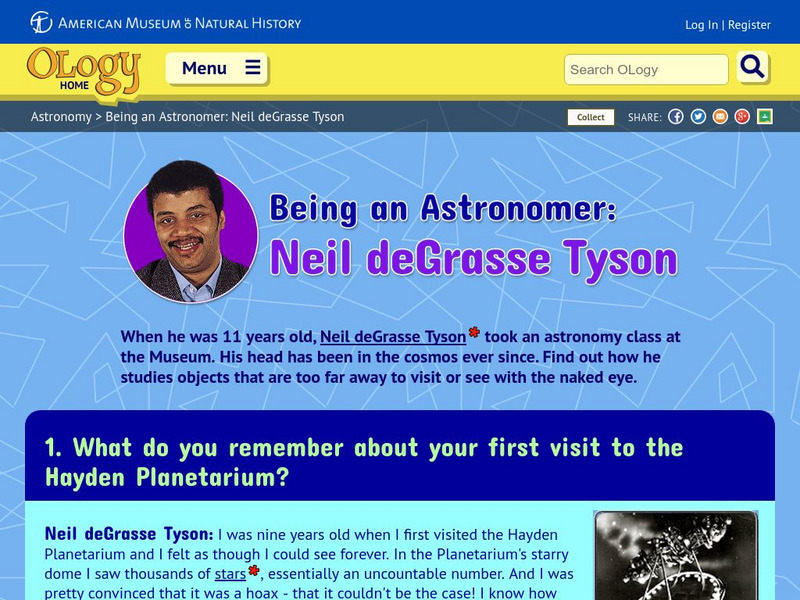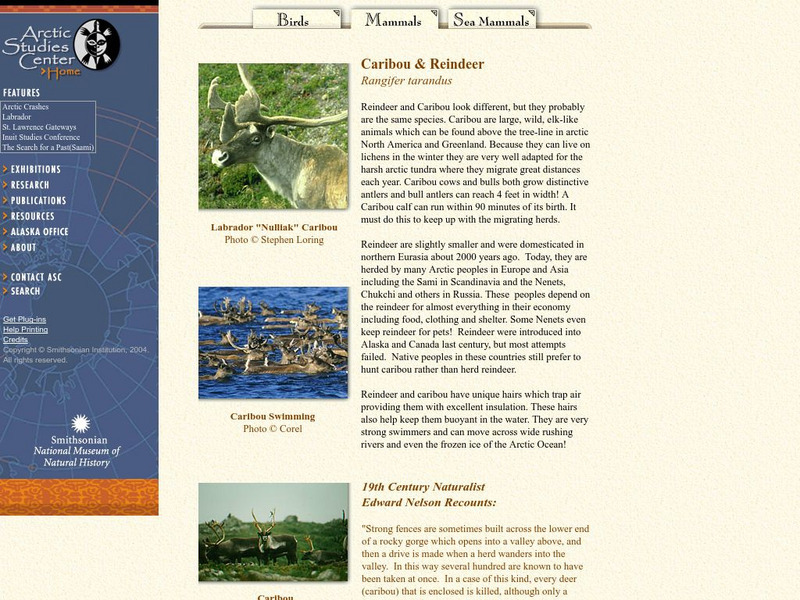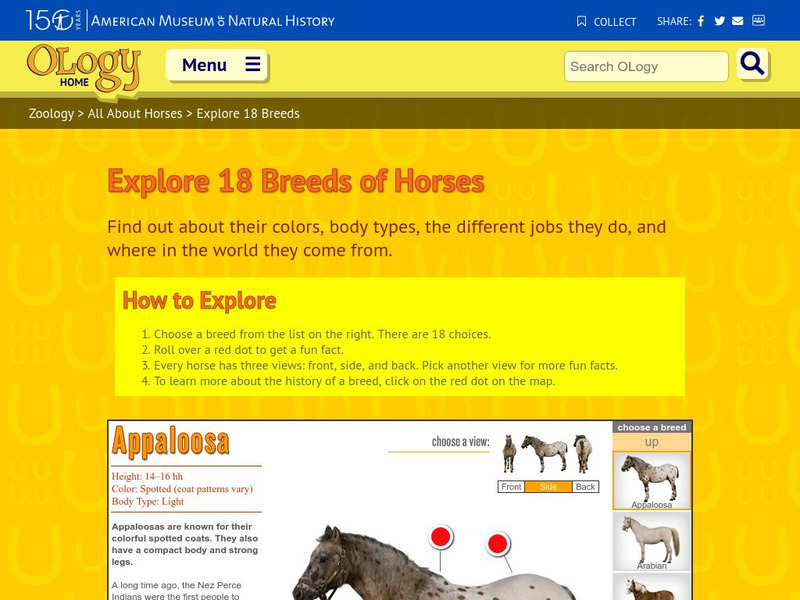American Museum of Natural History
American Museum of Natural History: Mosquitoes O Logy Card
Turn over this interactive OLogy card and start learning bite-size pieces of useful information about mosquitoes, such as their diet and physical characteristics.
American Museum of Natural History
American Museum of Natural History: Blue Ringed Octopus O Logy Card
Flip this interactive OLogy card to find fast facts, questions and answers, and other bite-size pieces of information about the blue-ringed octopus.
American Museum of Natural History
American Museum of Natural History: California Sea Lion O Logy Card
Flip over this interactive OLogy card and start learning bite-size pieces of useful information about the California sea lion, such as its habitat, diet, and physical characteristics.
American Museum of Natural History
American Museum of Natural History: Cassava Plant O Logy Card
Flip this interactive card to find fast facts, questions and answers, and other bite-size pieces of information about the cassava plant.
American Museum of Natural History
American Museum of Natural History: Domestication O Logy Card
An interactive program educating learners about the domestication of animals.
American Museum of Natural History
American Museum of Natural History: Europa O Logy Card
Flip this interactive card to start learning about Europa, one of Jupiter's largest moons. Answer multiple-choice and fact-or-fiction questions and review some fast facts about Europa.
American Museum of Natural History
American Museum of Natural History: Common Eastern Firefly O Logy Card
Flip this interactive card to start learning about the Common Eastern Firefly. Answer multiple-choice and fact-or-fiction questions and review some fast facts about this insect that communicates with patterns of flashing light.
American Museum of Natural History
American Museum of Natural History: Big Bang Ology Card
Flip this interactive card to start learning about the Big Bang. Answer multiple-choice and fact-or-fiction questions and review some fast facts about this giant explosion that began the Universe billions of years ago.
American Museum of Natural History
American Museum of Natural History: Cretaceous Period O Logy Card
Flip this interactive card to start learning about the Cretaceous Period. Answer multiple-choice and fact-or-fiction questions and review some fast facts about this period that marked the end of the line for all non-avian dinosaurs.
American Museum of Natural History
American Museum of Natural History: O Logy: Meet the Astronomer: Neil Tyson
Interview with astronomer Neil de Grasse Tyson provides insights into his research interests, his career preparation, and a range of astronomy-related topics.
Other
Florida Museum of Natural History: The Gopher Tortoise
Details surrounding the habits of the gopher tortoise are discussed in this resource by The Gopher Tortoise Council. The problems facing this tortoise are listed and potential solutions are outlined.
Smithsonian Institution
National Museum of Natural History: Arctic Studies Center:caribou & Reindeer
This site takes a look at the caribou and reindeer found in arctic regions around the world. Content includes the personal observations of the 19th Century Naturalist, Edward Nelson.
University of Florida
Florida Museum of Natural History: Most Commonly Asked Fish Questions
How many fish species are there? What is the world's largest and smallest fish? How long do fish live? How is the age of fish determined? You will find answers to these and other questions in this interesting site.
University of Florida
Florida Museum of Natural History: Ichthyology: How Fish Swim
Provides descriptions and illustrations of how fish swim.
American Museum of Natural History
American Museum of Natural History: O Logy: Beautiful Breeds: Thoroughbred
Detailed description of the thoroughbred, a racing horse originally from England.
American Museum of Natural History
American Museum of Natural History: O Logy: Stuff to Do: Space Travel Guide
What makes science fiction so exciting? Read some examples of the genre and then create your own science fiction story about space travel. Use the supplied "travel guide" to generate ideas and structure your plot.
American Museum of Natural History
American Museum of Natural History: O Logy: Beautiful Breeds: Quarter Horse
Detailed illustrations and description of the quarter horse, known for its speed over short distances. Choose quarter horse from the list on the right.
American Museum of Natural History
American Museum of Natural History: O Logy: Beautiful Breeds: Percheron
Detailed description of the powerful Percheron. Choose Percheron from the list on the right.
American Museum of Natural History
American Museum of Natural History: O Logy: Beautiful Breeds: Appaloosa
Description and detailed illustrations and of the Appaloosa, with answers to questions about its spotted coat.
American Museum of Natural History
American Museum of Natural History: O Logy: Beautiful Breeds: Selle Francais
Detailed illustrations and description of the Selle Francais, a show-jumping horse from France. Choose Selle Francais from the list on the right.
American Museum of Natural History
American Museum of Natural History: O Logy: Beautiful Breeds: Icelandic Horse
Description and detailed illustrations of the Icelandic horse, a small, hardy horse brought to Iceland by the Vikings. Choose Icelandic horse from the list on the right.
American Museum of Natural History
American Museum of Natural History: O Logy: Beautiful Breeds: Oldenburg
Detailed illustrations and description of the Oldenburg, a sport horse known for its abilities in equestrian competitions. Choose Oldenburg from the list on the right.
American Museum of Natural History
American Museum of Natural History: O Logy: Beautiful Breeds: Haflinger
Description and detailed illustrations of the Haflinger, a hardy pony originally from Italy. Choose Haflinger from the list on the right.
American Museum of Natural History
American Museum of Natural History: O Logy: Beautiful Breeds: Friesian
Description and detailed illustrations of the Friesian, a Dutch horse popular for its performance abilities. Choose Friesian from the list on the right.

